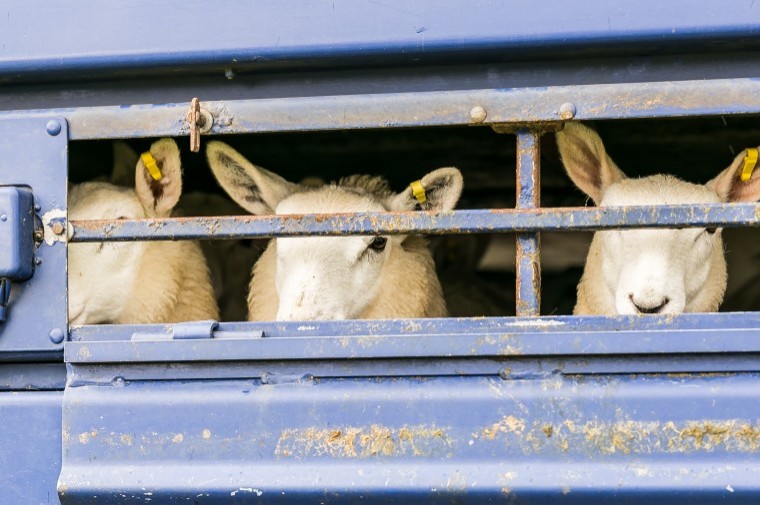In response to Mr Gove’s call for evidence on the ban, campaigners said that any action must include animals sent for further fattening as well as slaughter.
Last year, Kent Action Against Live Exports (KAALE) monitored 20,000 sheep being moved through the port of Ramsgate in Kent on their way to the continent for slaughter. “DEFRA only acknowledges about 4,000 of these are going for slaughter,” said KAALE chairman Ian Birchall. “But the remaining 16,000 are going under the further fattening rules before they are eventually slaughtered at religious festivals. This is a loophole which we want Mr Gove to close.”
This year, KAALE monitored one lorry load of sheep going out in January and another two lorries going out in February. “The peak season for this is the two weeks at the end of July and beginning of August immediately before the Eid festival,” Mr Birchall said. “There is a bit of trade before Christmas, but it is small and dies off again.”
“There are no benefits to the UK from the trade as no English companies are involved,” Mr Birchall said. “Thanet district council is paid for the ferry birth and the public pays for policing the protests against live exports.” Most of the lorries involved are Dutch, which come to the UK on full tanks of petrol and collect the sheep bought by dealers from Lancashire, Cumbria and Northumberland. “Very few sheep – if any – come from Kent,” said Mr Birchall.
The sheep’s journey time from the North is five or six hours. Then there is loading time, followed by four or five hours on the boat and another two and a half hours travel to France, Belgium or Holland. “Then they are slaughtered in conditions which are unacceptable here in the UK.”
“Calves are no longer exported from Ramsgate or Dover, although P&0 still exports breeding livestock from Dover. Calves do go from Scotland into Northern Ireland and then on to the Irish Republic, from where they go to Spain for further fattening and eventual slaughter,” Mr Birchall said. After the UK ban on veal crates in 1990, the calf forum developed a home market for baby beef and pink veal as an alternative to calf exports.
Mr Gove said taking action on live animal exports forms part of the government’s programme of reforms “to cement our position as a global leader in animal welfare as we leave the European Union and deliver a green Brexit.”
The farm animal welfare committee has also launched a review into the existing welfare standards for animals during transport, and this is being complemented by research commissioned by DEFRA from Scotland’s Rural College and Edinburgh University.
British Veterinary Association president, John Fishwick, said: “We believe that production animals should not be transported long distances to the abattoir but should be slaughtered as near to the point of production as possible. Animals should be transported on the hook, as meat, not on the hoof, as live animals.”




